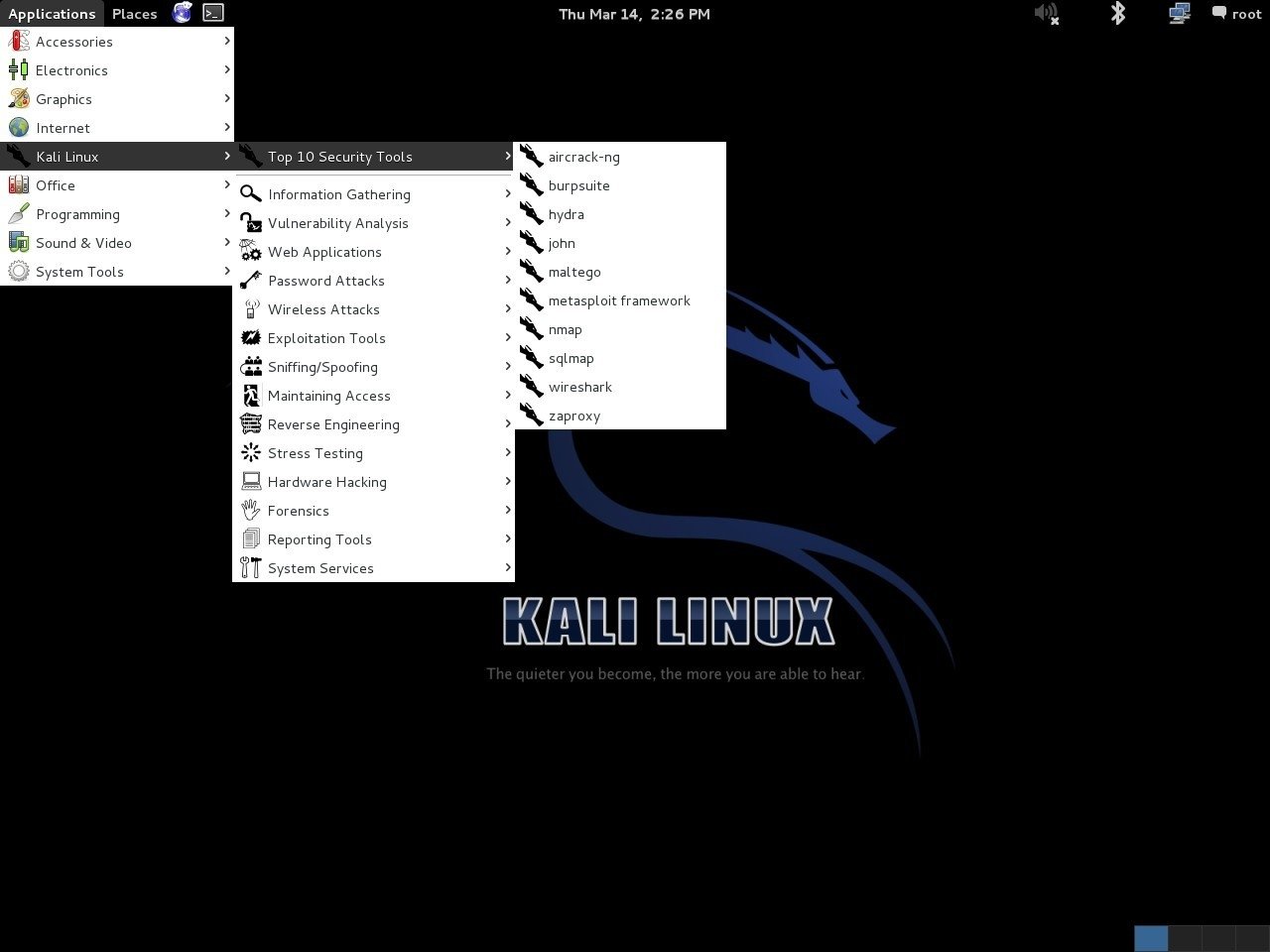

- Backtrack 5 r3 windows how to#
- Backtrack 5 r3 windows install#
- Backtrack 5 r3 windows full#
- Backtrack 5 r3 windows windows#
Reboot the system to verify it boots properly. It should say "could not find /boot/grub/menu.lst. Finally configure the grub boot menu by executing "update-grub". Configure grub to load during boot by executing "grub-install /dev/sda".
Backtrack 5 r3 windows install#
Install grub by executing "apt-get install grub". Your computer won't be bootable until we install the old version of grub. Then execute "rm /boot/grub/core.img" to get rid of the remaining GRUB 2 files. If it asks to remove all GRUB 2 files from /boot/grub select yes. To remove GRUB 2 execute "apt-get purge grub-pc".

Start the Backtrack system you have just installed and open a terminal. For this reason we will downgrade to GRUB (grub legacy) which will be able to handle everything perfectly and offers the same functionality. Once the installation has finished you can restart your computer to ensure everything is properly installed.Īt the time of writing this guide GRUB 2 is unable to chainload the truecrypt bootloader (at least to my knowledge and without annoying workarounds). Simply click on continue and proceed with the installation. When clicking on "Forward" it might tell you that some file systems are not marked for formatting but the files on it will nevertheless be deleted. For this I have chosen for a 20 GB ext4 partition.
Backtrack 5 r3 windows windows#
Afterwards we will install Windows on it. During the installation we will first use this space to install an unencrypted Backtrack system.

Another tool you can use is DBAN, which is a live CD allowing you to securely wipe an entire hard disk.īecause the partition manager that is available during the installation of Backtrack is limited in functionality we will use gparted to partition the hard disk. It's available in the backtrack live CD and can be started with "shred /dev/sda". To defend against these kinds of attacks we will overwrite the complete hard drive data several times with random data.īecause securely formatting the hard drive was not my main goal I personally used the tool shred. This can for example be done with a technique such as magnetic force microscopy. So an attacker might still be able to retrieve your supposedly deleted files.Īnother problem is that it might be possible to retrieve your old data even if it has been overwritten with new data. Instead they will be simply marked as deleted and may be overwritten with new data in the future.

It's needed because simply deleting all your files won't actually delete them. This is a fancy way of saying that we will use a tool to overwrite the complete hard disk with random data. For such situtions you can use deniable encryption which is also provided by truecrypt.īefore we begin the installation we will perform an anti-forensic format of the complete hard drive. It will not protect you in case an adversary forces you to reveal your password.
Backtrack 5 r3 windows full#
To clarify an important point: I use full disk encryption to protect my data in the event my laptop may be lost or stolen. The requirements to follow this guide are having the Windows and Backtrack installation CD ready to use. Truecrypt will be used to encrypt the Windows installation and dm-crypt using LUKS to encrypt Backtrack. If you want to install a different Linux distribution the instructions can differ significantly. It should be straightforward to follow this guide using a different version of Windows. This guide will be focused on Backtrack 5 (Gnome desktop) and Windows 7. The difficulty is to have both operating systems fully encrypted.
Backtrack 5 r3 windows how to#
This post will explain how to setup your computer in order to dual boot Backtrack 5 and Windows.


 0 kommentar(er)
0 kommentar(er)
